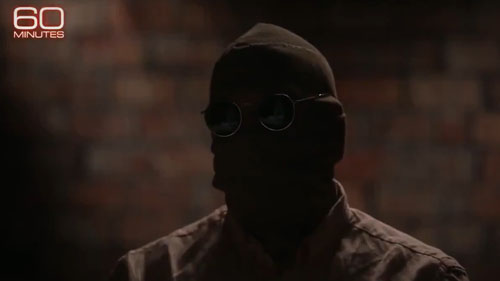| Recent Featured Videos and Articles | Eastern “Orthodoxy” Refuted | How To Avoid Sin | The Antichrist Identified! | What Fake Christians Get Wrong About Ephesians | Why So Many Can't Believe | “Magicians” Prove A Spiritual World Exists | Amazing Evidence For God | News Links |
| Vatican II “Catholic” Church Exposed | Steps To Convert | Outside The Church There Is No Salvation | E-Exchanges | The Holy Rosary | Padre Pio | Traditional Catholic Issues And Groups | Help Save Souls: Donate |  |









 " />
" /> " />
" /> " />
" /> " />
" /> " />
" />




India Gang Rape Case: 4 Men Sentenced To Death
SHIVANI RAWAT and KATY DAIGLE AP NEW DELHI -- An Indian court Friday sentenced to death four men for the gang rape and murder of a young New Delhi woman, ordering them to the gallows for a brutal attack that riveted India, where it became a symbol of the widespread mistreatment of women and the government's inability to deal with crime. Issuing his decision, Judge Yogesh Khanna said the attack "shocked the collective conscience" of India. "In these times, when crime against women is on the rise, the courts cannot turn a blind eye toward such gruesome crimes." After the death sentence, the wail of one of the four men, 20-year-old Vinay Sharma, filled the tiny courtroom. Sharma, an assistant at a gym, then broke down in sobs. As Khanna walked from his bench, defense lawyer A.P. Singh, who has defended all four men at various times, began to shout at him: "This is not the victory of truth. But it is the defeat of justice." Like all death sentences, Khanna's order must be confirmed by India's High Court. The men can appeal their case to the High Court, as well as to the Supreme Court, and ask the president for clemency. The victim's family, along with numerous politicians and government officials, had long called for the men to be executed. The family was in the courtroom as the sentence was announced. "I am very happy our girl has got justice," said the victim's father, who cannot be named under Indian laws guarding his daughter's identity as a rape victim. The 23-year-old victim and a male friend – by all accounts they were not romantically involved – were coming home last December from an evening showing of the movie "Life of Pi" when the men lured them into boarding a bus they were joy-riding through the city. They quickly beat the friend, held the woman down and took turns raping her. They also penetrated her with a metal rod, causing the massive injuries that led to her death in a Singapore hospital. India's Supreme Court has ruled that the death penalty should be used only in "the rarest of rare cases," though what defines those cases remains highly debated. Only two people – both terrorists – have been executed in India since 2004. Under intense pressure, the Congress party-led national government worked hard to project a tough-on-crime image after the attack, reforming a series of laws on sexual violence. Many in the party, which faces dwindling support and national elections next year, had made clear they wanted the men to be executed. Home Minister Sushilkumar Shinde, who earlier in the week said death sentences were assured in the case, welcomed the sentence. "The victim and her family have got justice," he told reporters in New Delhi. "The judge has set an example for anti-social elements that they would meet a similar fate if they committed such crimes." If India's chaotic judicial system is supposed to be independent of politics, Singh, the defense lawyer, saw a political hand in the judge's decision. "The judge has given the death sentence under political pressure," he said. "The punishment has been given at the government's insistence." Many have expressed hope that the case, and the intense media coverage, will help change traditional attitudes that relegate women to subservient roles and contribute to a landscape of sexual harassment and fear. Women learn from girlhood to dress conservatively and avoid going out after dark. They teach themselves to ignore the rampant groping and lewd comments – locally known as "eve-teasing" – they encounter in public. Rapes are regularly blamed on the victims. Many rape victims are shunned by their families, fired from jobs and driven from their home villages. As a result, most rape victims are still thought to remain silent. to read more click here: AP
Sign up for our free e-mail list to see future vaticancatholic.com videos and articles.
Recent Content
^